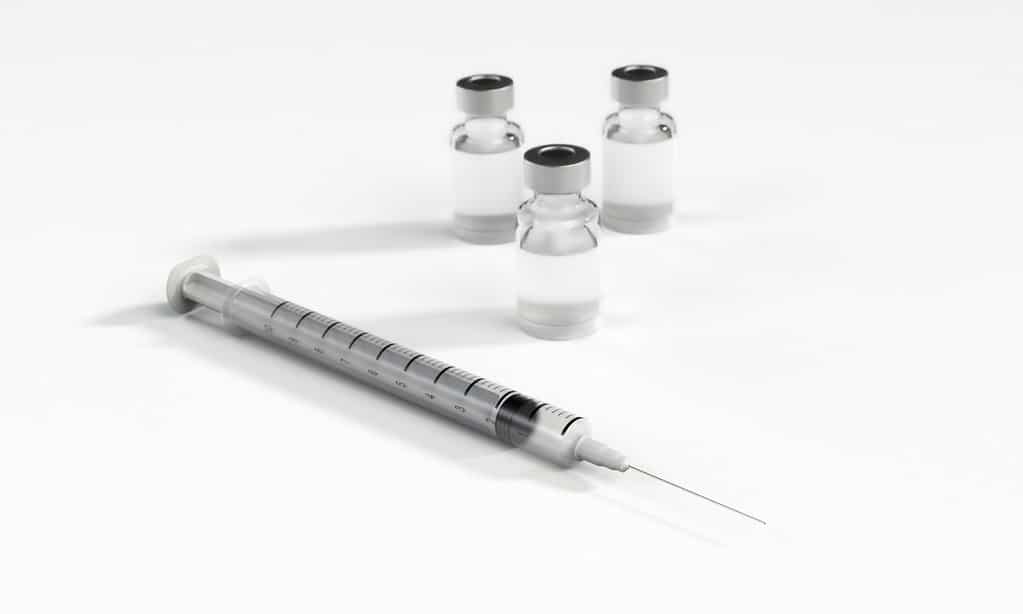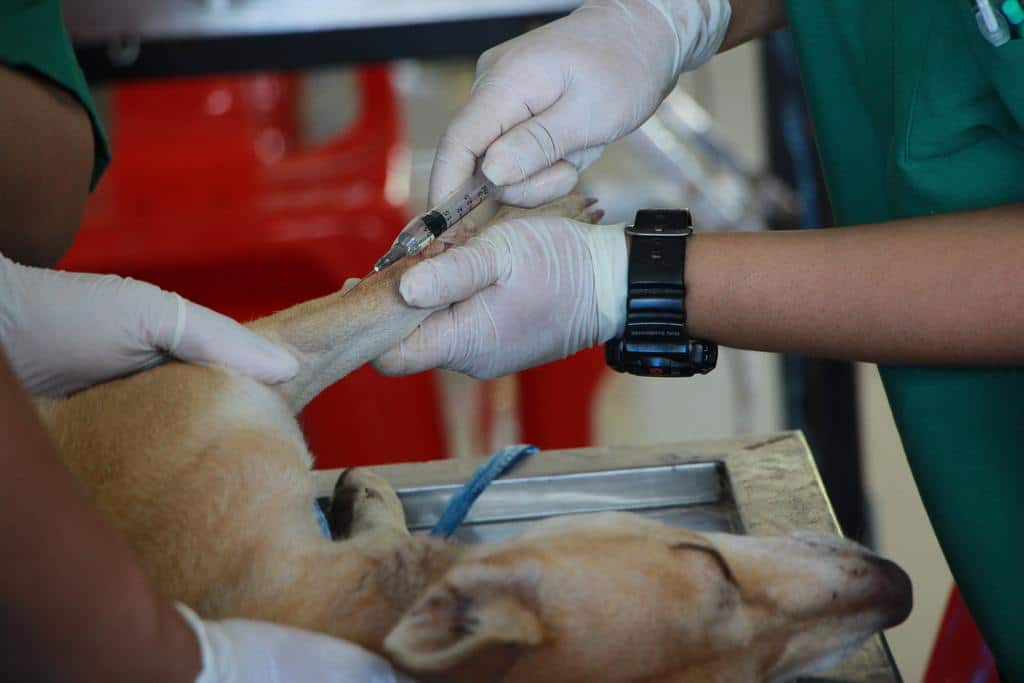We love our dogs and we want to keep them around for a long time. Which means doing our best to keep them healthy: feeding them the best food, giving them enough exercise, and—of course—getting yearly shots to keep them free from disease.
But are dog vaccinations really the best way to protect your dog?
How Do Vaccines Work?
A vaccine is a modified or killed version of a virus that is introduced into the body to stimulate a response from the immune system.
In layman’s terms, a dead virus is injected into the body to encourage the body’s immune system to fight off the disease. Because the virus is either killed or modified so as not to be harmful, there is no danger of contracting the disease through the vaccine.
As the body fights the virus, it develops antibodies (also known as immunoglobulins) unique to that particular virus. These antibodies are blood proteins that “lock on” to the virus and neutralize it.
Antibodies are the reason why you can only contract certain diseases (like chicken pox) once in your life. Once your body has developed those antibodies, it knows how to fight off the virus once it is introduced again.
How Safe Are Dog Vaccinations?
Dog vaccinations are 100% beneficial at preventing diseases such as rabies, bordatella, and parvovirus.
The danger comes from over-vaccination.
Vaccinosis (vaccine-related illness) can cause side effects such as autoimmune disease, chronic inflammation, diarrhea, vomiting, and skin irritation. Every time your dog receives a vaccine, the risk of these side effects is increased.
The good news? Your dog might not require that yearly vaccine after all, thanks to an innovation known as the titer test.
What Is The Titer Test?
The titer test is a blood test that measures the presence (and level) of certain antibodies in your dog’s blood.
If antibodies against a certain disease are present in your dog’s system, further vaccinations are likely unnecessary.
Is The Titer Test Accurate?
Titer testing currently exists for the following diseases:
- Rabies
- Canine distemper
- Feline distemper
- Parvovirus
- Adenovirus
If analyzed properly, the titer test is extremely accurate.
Titer test results are expressed as a number. The higher the number, the higher the concentration of antibodies present.
However, some well-meaning dog owners will interpret a low number as indicating that their dog has “low immunity” and therefore needs another vaccine to “top them up.”
In reality, the presence of any level of antibodies in your dog’s blood is a good indication that their bodies are still able to fight off the disease, even if the “recommended” period of time has passed.
Low levels of antibodies indicate that your dog has not been recently exposed to the virus. If your beloved pet comes in contact with the disease again, their immune system will resume production of the antibodies to fight it off.
How Often Should The Titer Test Be Done?
Most vets recommend repeating the titer test every 1-3 years, though studies have shown that more than 90% of dogs have sufficient levels of antibodies to protect them for 7 to 9 years.
If you are using titer test results to avoid giving your dog a potentially unnecessary rabies vaccination, you will need to do testing every three years and ask your animal’s vet for a letter stating that the vaccination is medically unnecessary.
Conclusion
Dog vaccinations—along with proper diet and exercise—are a necessary part of keeping your dog healthy and free from disease.
But most things are better in moderation.



